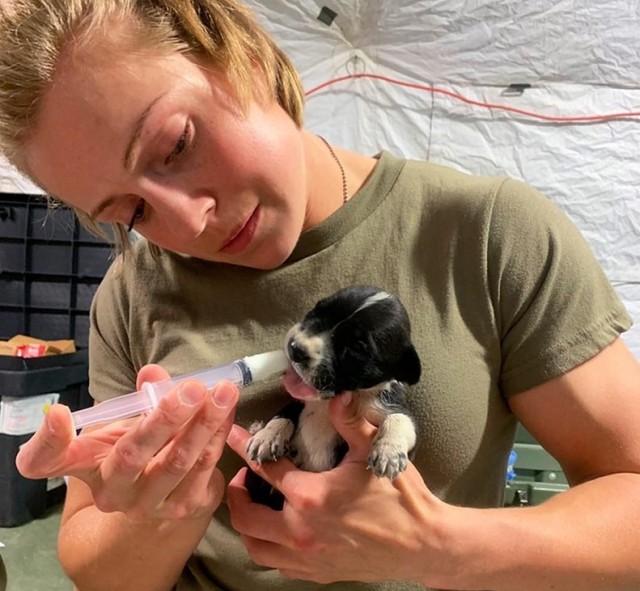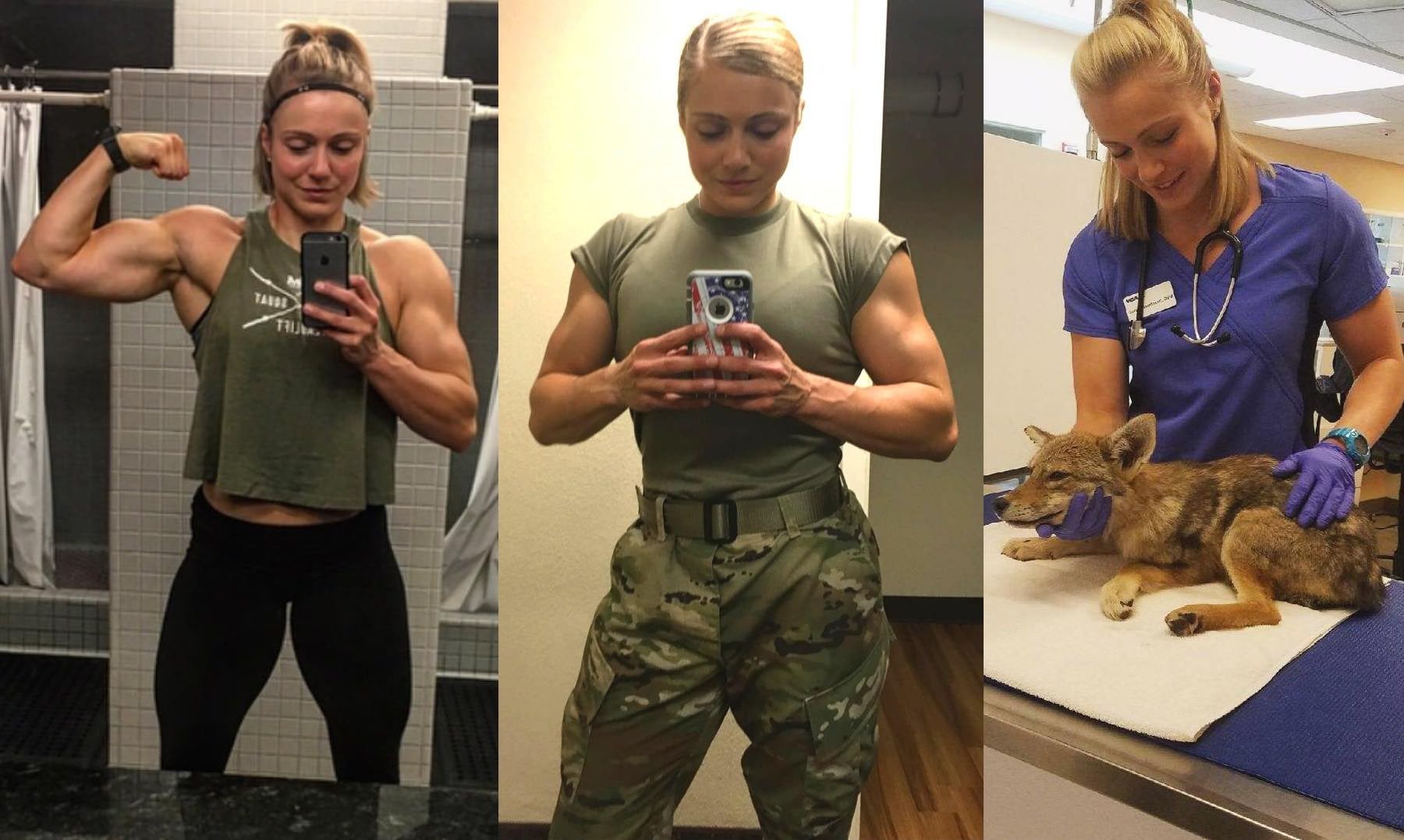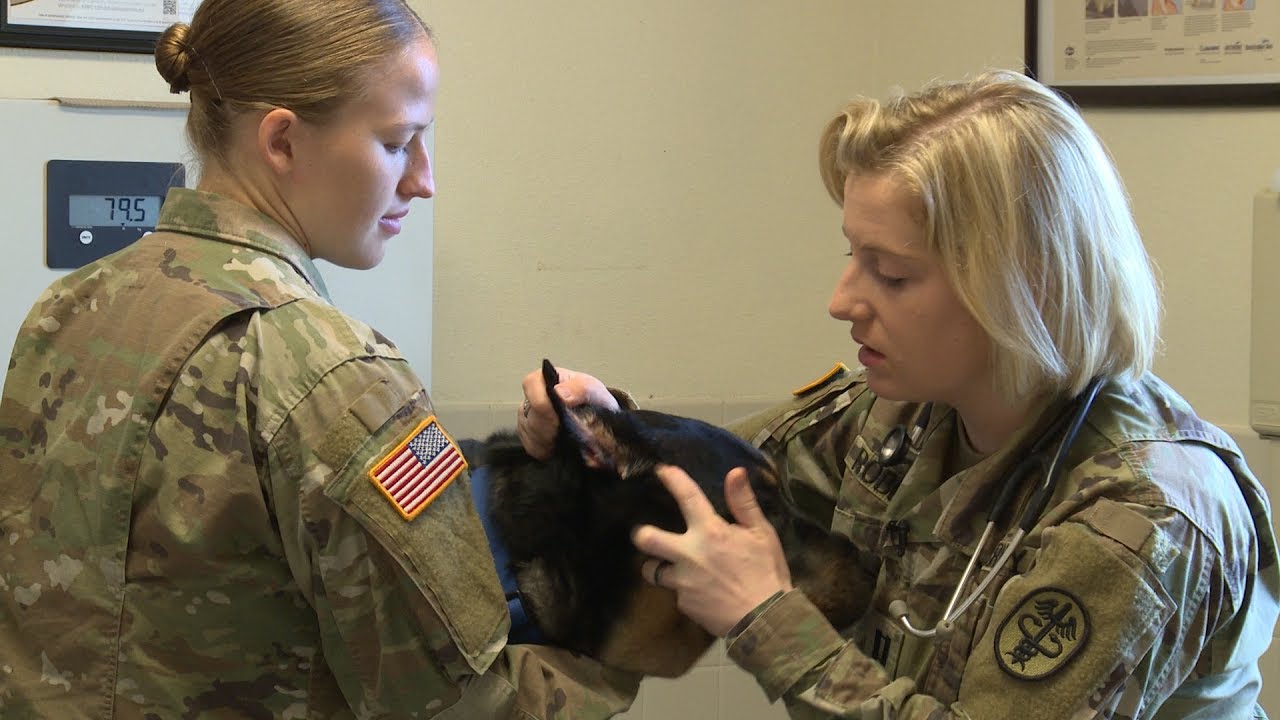Mentally and physically strong: Work ethic carries Army veterinarian
It isn’t unusual to hear about a random act of kindness. We have seen instances where a person went to a great length to save the life of another being.
A military veterinarian saved the lives of two dogs at New Hampshire following a usual event. Here is the story about the night she saved two lives.
Work ethic carries Army veterinarian
Danica Goodheart is a Military Veterinarian. She graduated from Auburn University College of Veterinary Medicine in 2016 and proceeded to work for 2 years as an ER veterinarian in a 24/7 Emergency and Specialty Hospital.
One cold night in 2016 at an emergency veterinary clinic in Concord, New Hampshire, she encountered two fatally wounded dogs. She had completed working the overnight shift when a middle-aged couple emerged from the winter cold carrying a bleeding pit bull. Moments later another man walked in clutching a wet and injured golden retriever.
The two dogs had grappled with another dog on a frozen lake. Police fired at the dogs in an attempt to break up the fight however ended up hitting a bullet to one of the dogs.

Goodheart continuously worked on the pit bull for two hours. She treated the bullet wound after the projectile had torn through its abdomen. She treated the pit bull for hypothermia and bite wounds.
After saving their lives, Goodheart approached elderly couples. They were ecstatic to learn that their pet would survive.
She later mentioned in the interview:
"I will never forget the look on their faces."
Goodheart’s co-worker Capt. Chelsi Blume mentioned:
"She will put 110 percent effort into whatever she's doing,"
A Fitness Freak
A fitness junkie since her teen years, she has continued to train and keep in peak shape. She spends up to 25 hours a week in the gym.
She was placed first in her first bodybuilding competition at the Jay Cutler Classic in Richmond, Virginia in August 2019. She won the overall figure championship for women.
She had only trained for four months as a bodybuilder. She hired strength coach Nic Wightman shortly after arriving at Fort Bragg, North Carolina.
She has always been an athlete and a fitness freak. She even competed in Division I track at the University of New Hampshire.
In addition, she has built meal plans for fellow Soldiers and friends to help them get in shape.

She has been active in the military as a veterinarian since 2016. She is assigned to the 248th Medical Veterinarian Medical Detachment at Fort Bragg. Along with a seven-person staff, she is charged with the medical care of military working dogs deployed on the field to detect drugs and explosives.
She explains that it takes resiliency to meet the demands of the position, which requires veterinarians to constantly train and prepare for a variety of duties, including providing preventive medicine, outpatient care and disease control for pets at military installations.
Even before joining the military, she had understood how to work under duress, having already dealt with the pressures of working in the ER. There she tended to injured dogs and cats and even injured animals found by roadsides.
This April, Goodheart will take part in Defender 2020 a multi-national joint military exercise that will test the Army's ability to project its capabilities from the U.S. to Europe.
In her early life, she grew up in the sprawling 100-acre farm on the eastern shore of New Hampshire’s Lakes Region.
"I was always around animals," Goodheart said. "My mother has a very strong passion for animals and instilled that in us girls."
While attending high school, Goodheart learned of the importance of military working dogs, who often must go into harm's way when searching for explosive devices. That helped spur her toward a career as an Army veterinary doctor.
Veterinary Careers in the Military
If you’re willing to become a Military Veterinarian you will uphold the highest form of service.
The military vets are not only assigned to treat military canines but also provide veterinary services to military family pets at bases all over the world.
The military vets may perform a wide range of medical services including pet surgery. Along with the military animals and family pets, veterinarians in the military also play a big role in supporting the public health mission for the community. They extensively work with physicians and preventive medicine experts to develop zoonotic disease prevention strategies, especially focusing on rabies on rabies-prone areas.
They also supervise and inspect food items supplied to military service members and their families. This includes traveling abroad to perform audits on food and beverage manufacturing facilities to make sure that they are following the proper food safety standards.
The US Military offer appealing options for veterinarians considering serving a full 20-year career. Through the Long-Term Health Education & Training program, the military will pay for veterinarians to go back to school for an MPH, Ph.D., or any number of clinical and research-oriented residency programs.
Requirements to Be a Military Vet
Veterinarians looking to enter the Military must meet the same standards and physical fitness requirements as all other soldiers.
They will be subjected to an evaluation of your medical history and an intense medical exam before even being accepted as the military vet.
They also have to take a physical fitness test 4x per year that measures their ability to meet certain minimum requirements for pushups, situps, and a two-mile run.

Finally, their height and weight are measured at each of these tests to ensure that they meet the standard. The requirements are different for men and women, and they also change based on your age.
You must understand the importance of veterinary before considering to be enlisted in the military as the veterinarian. The most important thing that Military veterinarians must comprehend is that they are not ultimately in control of their lives and careers during their time in service. The deployment and active service area are designated by seeing where you fit the best.